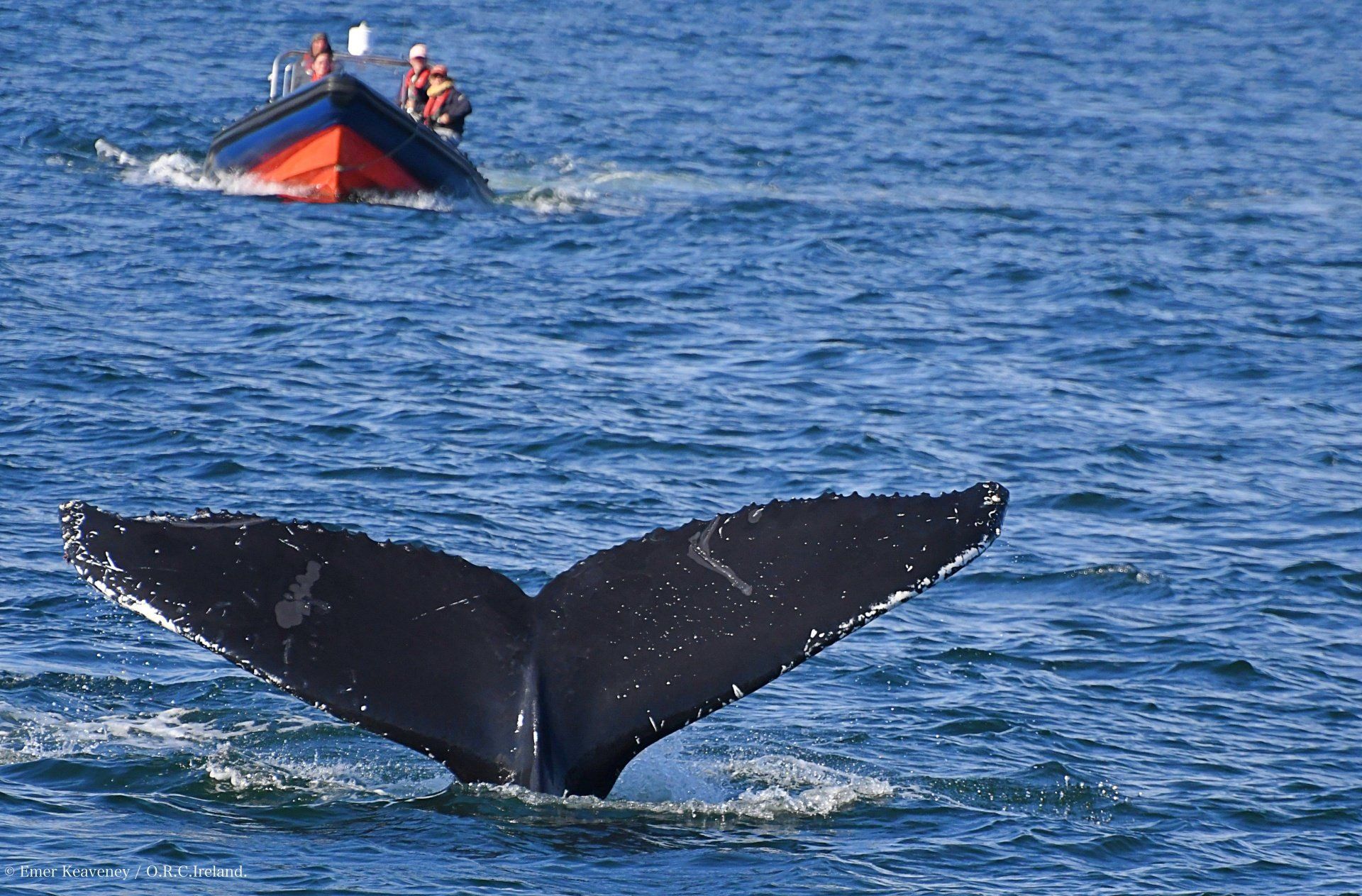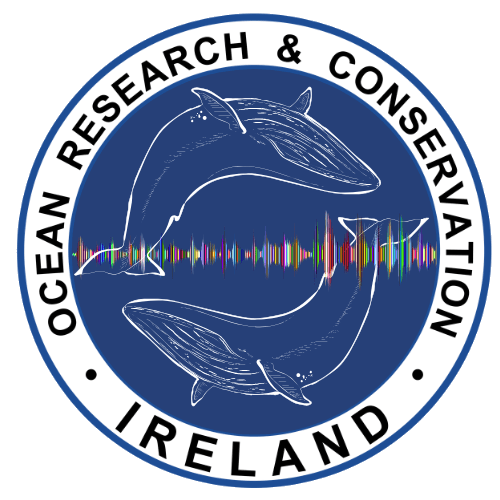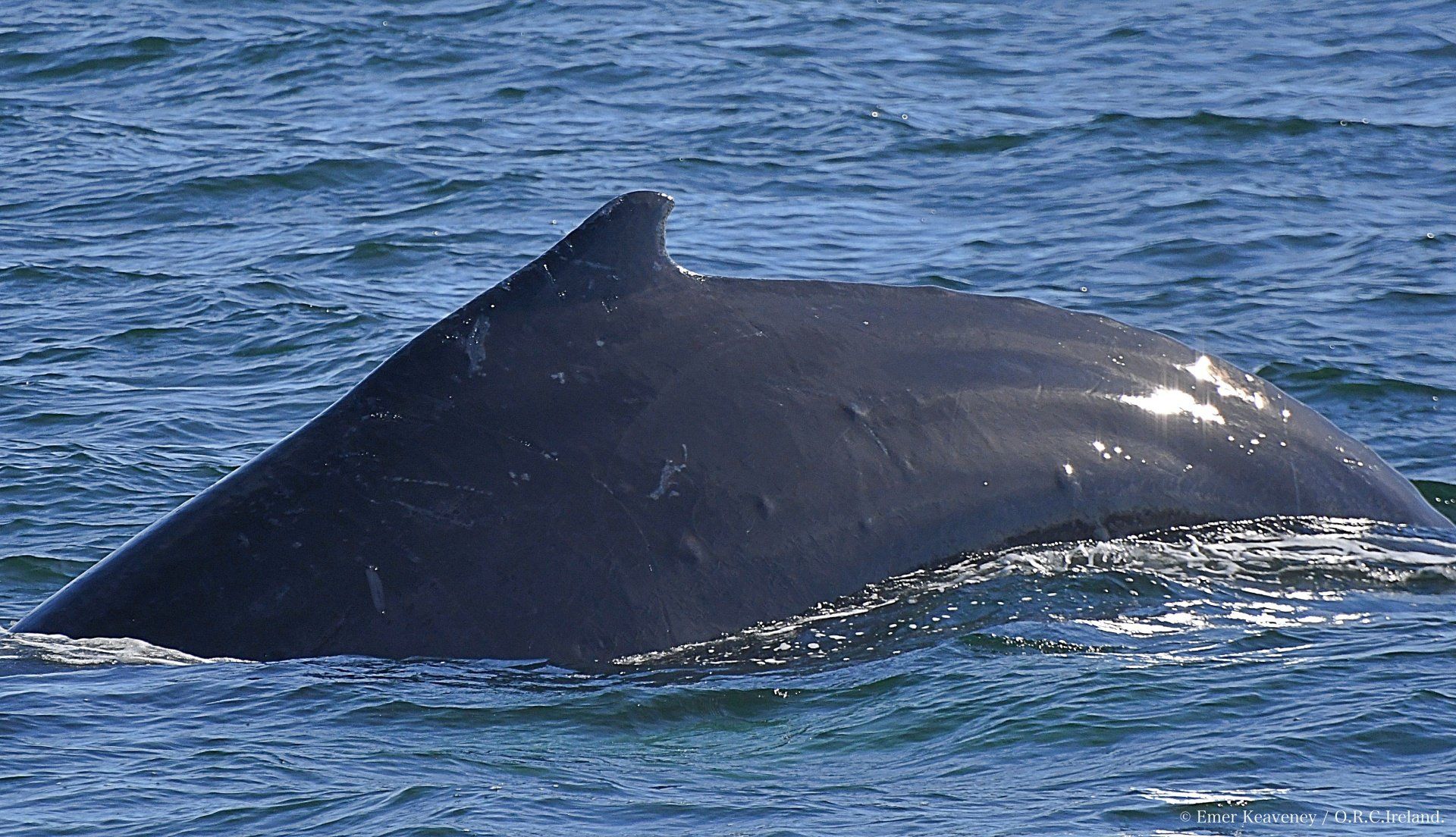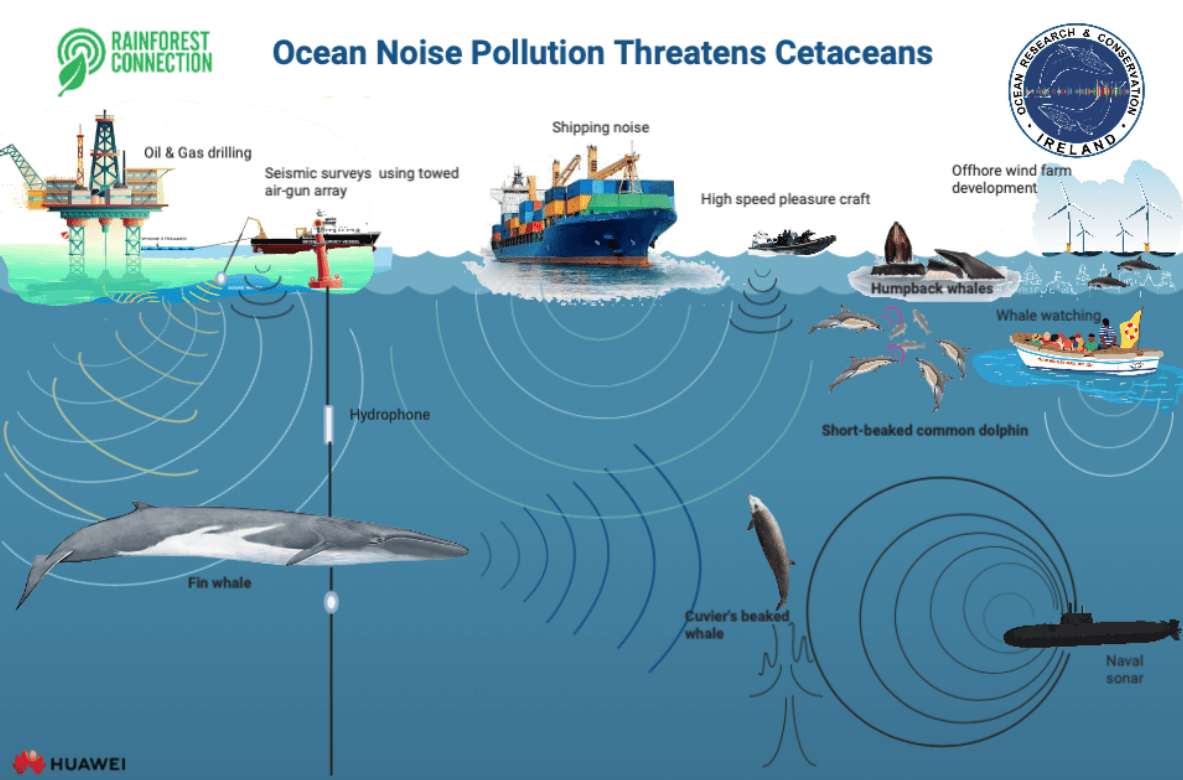PRESS RELEASE: Smart Whale Sounds Project.
New first-time study to assess the impact of marine traffic on baleen whales in Irish waters. Huawei Ireland providing funding and technology support for groundbreaking Ocean Research & Conservation Ireland study.
The waters off the south coast of Ireland have been selected as the study location for Ireland’s first real-time acoustic monitoring project of large whales, with the aim to relay alerts to maritime traffic to reduce the risk of disturbance and ship strike. The project is to be undertaken by Ocean Research & Conservation Ireland, a “for-impact” non-profit organisation based in Cork, in partnership with the Rainforest Connection .
The Automated Cetacean Acoustics Project (ACAP) is supported by Huawei Ireland , who are providing a research grant with technological support through its global TECH4ALL Programme . TECH4ALL is Huawei’s corporate responsibility programme and aims to help people, small organisations and the environment through digital technology.
The south coast of Ireland is a cetacean (whales, dolphins and porpoise) “hot-spot”, yet we know very little about what the soundscape of some of their most important habitats in Europe are like.
Ocean noise can affect a multitude of marine species, from seals, fish, squid, and it is well known that noise pollution can threaten the survival of whales.
“In the lives of whales and dolphins, sound has taken an incredible variation in shapes and functions. From the ‘acoustic vision’ of echolocation in dolphins to the complex and harmonious structure of humpback whales songs, we can understand how critical sound is for the survival and welfare of Cetaceans. As the oceans grows louder without control due to human activities, what used to be symphony of life becomes a cacophony of noises where whales are growing quieter and deaf.” - said Davide Lelong, Bio-acoustician, Ocean Research & Conservation Ireland.
Sound moves more than four times faster in water than through light. So, what seems like a muffled rumble of an engine to us standing on the deck of a ship, is much louder to wildlife in close proximity beneath the waves. Speed boats and out-board motors create piercing high-pitched sounds, while large commercial vessels like massive cargo ships and tankers, create low-pitched noise that can travel over huge distances.
Effects of noise pollution can vary from mild to severe, and may even cause the death of a whale. Navy sonar has been shown to cause embolisms in beaked whales who get the “bends” as they quickly ascend to avoid the acoustic trauma. Ship noise, such as the low hum of a container ship can mask whale calls, effect animal communication and important life history strategies such as co-ordinated feeding or move animals out of important habitats.
These insights into the importance of sound to cetaceans have only been highlighted as globalism drives the ever increasing levels of shipping traffic along the south coast of Ireland. The ambient noise around Ireland’s oceans are also increasing again since COVID restrictions have lifted and lockdown measures eased, leading to an increase in pleasure craft, speed boats and recreational vessels along our coasts. For a brief period, for the first time in their lives, whales in Irish waters got a reprieve from ocean noise.
Now with the help of innovations in monitoring equipment, we have a unique opportunity to listen to the cacophony of ocean giants that we are obligated to protect and gain a better understanding in how they use our waters.
The south-west coast represents a diverse array of important foraging, resting and reproductive habitat for 25 cetacean species, particularly humpback, fin and minke whales.Humpback whales are famous for their elaborate and complex songs, produced by the males on their breeding grounds. In Ireland, humpback whales use our waters as important foraging habitat, building their energy stores on their stop overs from their long migration to and from low latitude breeding grounds. Coordinated group feeding behaviours such as bubble net-feeding may involve a loud intense feeding call that is thought to function in either; startling the fish into a tighter bait ball to engulf a larger amount of prey or signalling surfacing timing (ready, set, GO!).
The new study will see the deployment of acoustic monitoring equipment in the Celtic Sea at locations where sightings of large whales, such as humpback and fin whale have been recorded. The hydrophones will be able to listen for presence of whales, and with the help of machine learning models to enhance data analysis, and provide a near real-time automated detection system. Among the benefits of this project are an insight into some of the most elusive species on our planet behaviour and movements, and most importantly, the development of an early warning system that will enable marine traffic to reduce vessel speed in time to lessen the risk of disturbance, or worse, ship strike!
“Ecotourism can play an important role in the conservation of marine wildlife and we have a duty as stewards of our ocean to understand the impact of noise pollution that we humans, introduce to the marine environment.” - Kieran Collins, Director of Ocean Research & Conservation Ireland.
The project will see Ireland leading the way in the advancement of policy and programmes that respect and protect marine wildlife informed by near real-time data available for the first time, with the help of Rainforest Connection and Huawei. Not only will the detections be able to help inform policy and decision makers in the establishment and management of potential marine protected areas (MPA’s), they will also be used for education and made available to the wider public to hear the symphony of cetacean sounds.
Commenting, lead researcher Emer Keaveney, Marine Mammal Ecologist, Ocean Research & Conservation Ireland said: “Recent advances in technology provide increasing opportunity to use these innovations for good and to enhance our understanding of the natural world. This is such an exciting time as now we have a chance to peer inside the secret world of whales in Irish waters, and directly improve their welfare and conservation”.
“We are a voluntary organisation that relies heavily on third party and private assistance, so we are delighted to have this opportunity to be involved in Huawei's TECH4ALL programme.”
Commenting on the announcement, Tony Yangxu, CEO Huawei Ireland
said: “Huawei has been a trusted partner for over 16 years in Ireland, and we are excited to be supporting Ocean Conservation & Research Ireland as our very first TECH4ALL initiative in Ireland.”
“Huawei believes that no one should be left behind in the digital world and we have made it our mission to put digital inclusion front and centre of our business. Our TECH4ALL programme works to assist people, small organisations and the environment through digital technology - namely electronic tools, systems, devices and resources that generate, store and process data.”
Established in 2019, Huawei’s TECH4ALL programme aims to help 500 million additional people around the world benefit directly from digital technology before 2024.
SHARE THIS ARTICLE

















